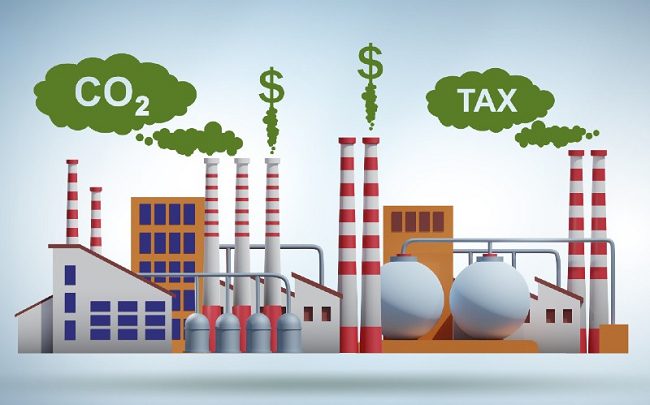A vast majority of people believe governments must tax oil, gas and coal corporations for climate-related loss and damage, and that their government is not doing enough to counter the political influence of super rich individuals and polluting industries.

These are the key findings of a global survey -including responses from South Africa and Kenya – which reflect a broad consensus across political affiliations, income levels and age groups.
The study, jointly commissioned by Greenpeace International and Oxfam International, was launched on Thursday, June 19, 2025, at the UN Climate Meetings in Bonn (SB62), where government representatives are discussing climate policies, including ways to raise at least $1.3 trillion annually in climate finance for Global South countries by 2035.
The survey was conducted across 13 countries, including most G7 countries.
Sherelee Odayar, Oil and Gas Campaigner for Greenpeace Africa, said: “In Africa, people are feeling the heat – literally – and they’re done footing the bill for disasters driven by record fossil-fuel profits. This survey sends an unmistakable message: our governments have a popular mandate to make oil, gas and coal corporations pay their fair share for the floods, droughts and hunger they’ve helped unleash. A polluter-pays tax would turn dirty profits into clean investments for frontline communities, and that’s the climate justice Africa has been calling for.”
Ali Mohamed, Special Envoy for Climate Change, Kenya, said: “African Leaders adopted the Nairobi Declaration during the inaugural Africa Climate Summit in Nairobi, which among others, calls for a global carbon taxation regime, including levies on fossil fuel trade. Kenya co-chairs the Global Solidarity Levies Taskforce, which brings together a coalition of willing countries to design and implement progressive levies that reflect the true cost of pollution.
“The principle is simple, sectors profiting from the increasing greenhouse gas emissions that cause the destructive climate change, must be taxed to support climate impacted vulnerable communities in Africa and other developing world, adapt and recover from the devastating losses and damages being suffered so frequently.”
Mads Christensen, Executive Director of Greenpeace International, said: “These survey results send a clear message: people are no longer buying the lies. They see the fingerprints of fossil fuel giants all over the storms, floods, droughts, and wildfires devastating their lives, and they want accountability. By taxing the obscene profits of dirty energy companies, governments can unlock billions to protect communities and invest in real climate solutions. It’s only fair that those who caused the crisis should pay for the damage, not those suffering from it.”
Amitabh Behar, Executive Director of Oxfam International, said: “Fossil fuel companies have known for decades about the damage their polluting products wreak on humanity. Corporations continue to cash in on climate devastation, and their profiteering destroys the lives and livelihoods of millions of women, men and children, predominantly those in the Global South who have done the least to cause the climate crisis.
“Governments must listen to their people and hold polluters responsible for their damages. A new tax on polluting industries could provide immediate and significant support to climate-vulnerable countries, and finally incentivise investment in renewables and a just transition.”
The study, run by Dynata, was unveiled alongside the Polluters Pay Pact, a global alliance of communities on the frontlines of climate disasters. The Pact demands that – instead of piling the costs on ordinary people – governments make oil, gas and coal corporations pay their fair share for the damages they cause, through the introduction of new taxes and fines.
The Pact is backed by firefighters and other first responders, trade unions and worker groups, and mayors from countries including Australia, Brazil, Bangladesh, India, the Philippines, Sri Lanka, Nigeria, and South Africa, the US, and plaintiffs in landmark climate cases from Pacific island states to Switzerland.
The Pact is also supported by over 60 NGOs, including Oxfam International, 350.org, Avaaz, Islamic Relief UK, Asociación Interamericana para la Defensa del Ambiente (AIDA), Indian Hawkers Alliance, Pacific Islands Students Fighting Climate Change, Jubilee Australia and the Greenpeace network.
The survey’s findings reveal broad public support for the core demands of the Polluters Pay Pact, as climate impacts worsen worldwide and global inequality grows.
